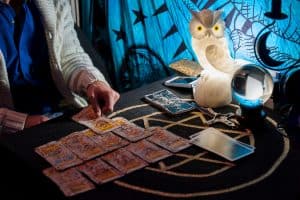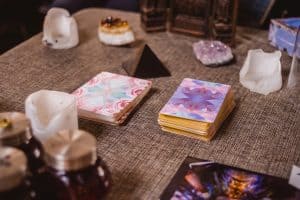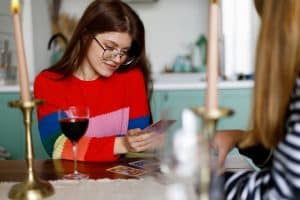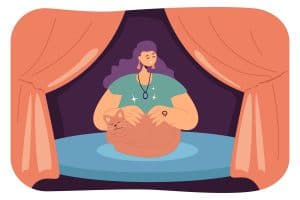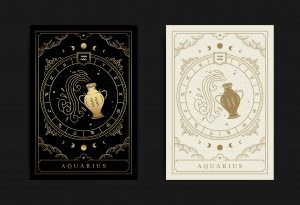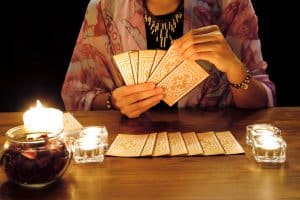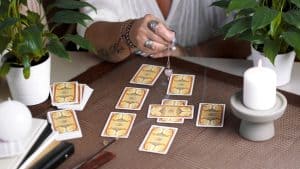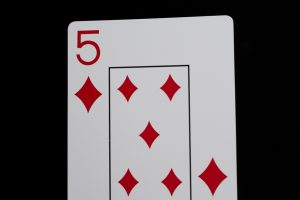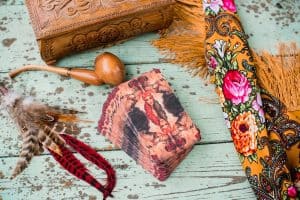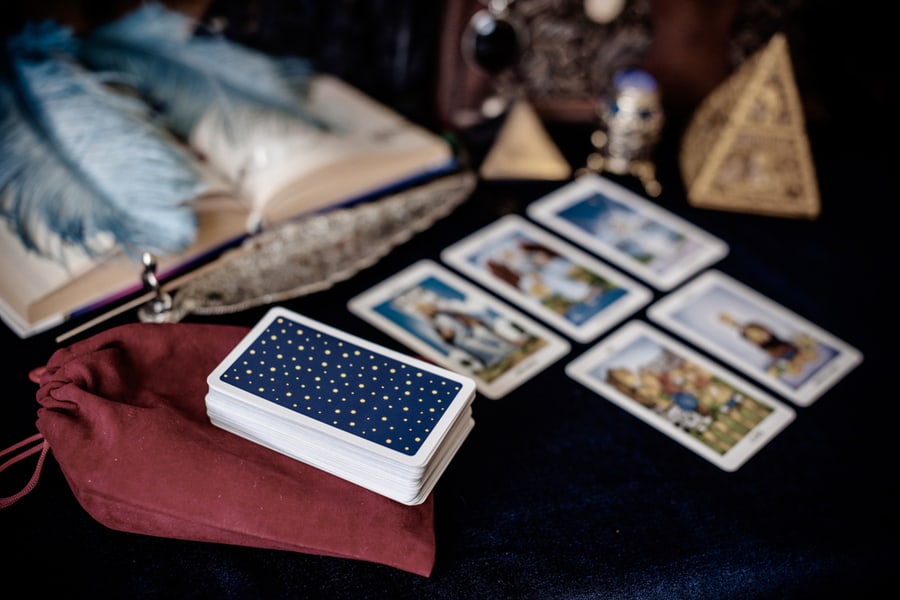
Tarot cards have been the subject of discussion in recent years, and the most common topic among these discussions is intertwined with tarot being a closed practice.
Closed practice, as the name suggests, can only be performed accurately by people belonging to a specific group or who went through a particular process to become a part of that specific group. In this era of technological advancements, tarot cards have brought people close to spirituality.
That’s why; the topic of tarot being a closed practice is a hot potato as of late. However, this notion didn’t come right after tarot cards came to be but got attached to it later.
Hence, it brings us to whether tarot is a closed or an open practice.
The answer to this question is; tarot is an open practice, but at the same time, it also shares some history as a closed practice. However, the history of tarot as a closed practice is shrouded in mystery, so it is better to call it an open practice, if not a semi-open one.
Here, we will dive into an in-depth view of why tarot is an open practice, when the notion of it being a closed practice started to arise, and how history links these points. Continue reading to get an immersive view of things.
Why Is Tarot an Open Practice? An Outlook on History
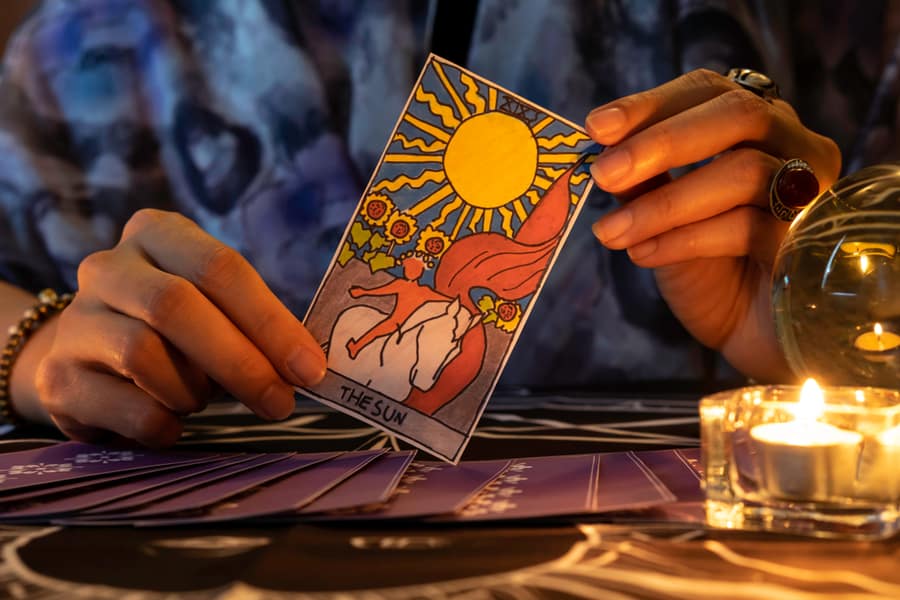
The history of tarot cards is closely related to the Mamluk game, the pioneer for tarot cards of the modern era. These cards were brought to Europe by Islamic soldiers and developed into tarot cards by the early-mid 15th century.
However, others believe that tarot came from another game called “Karnöffel.” This game originated in Germany and also links with the early-mid 15th-century development of tarot cards as their basis.
Whichever the case may be, the point to note is that tarot cards were introduced at the start in the form of board games. There was no instance of tarots being linked to divinity, religion, people or race specific, and so on.
The origin of Major and Minor arcana in tarot cards came into existence in the 1400s. These cards were used as playing cards, and even the illustration on the cards differed based on the people using them. Wealthy people had their cards custom-made for them.
Role of Divination
The role of divination was the point where the misconception about the origin of tarot cards originated. The French Occultist Etteilla showed the potential of tarot cards in fortune telling and divination with his book in the late 18th century.
So far, tarot cards only implied the “potential” they hold, and there was no instance of their relation to a closed practice. However, the interest in tarot reached a standstill until it started picking up again in the early 20th century and spiking by the end of it.
These reasons make tarot an open practice, i.e., anyone with the deck can practice. Besides, tarot cards are an individual-suited practice, and tarot reading is not a religious activity but a spiritual one which further emphasizes its universality.
How Is Tarot Linked With Closed Practice?
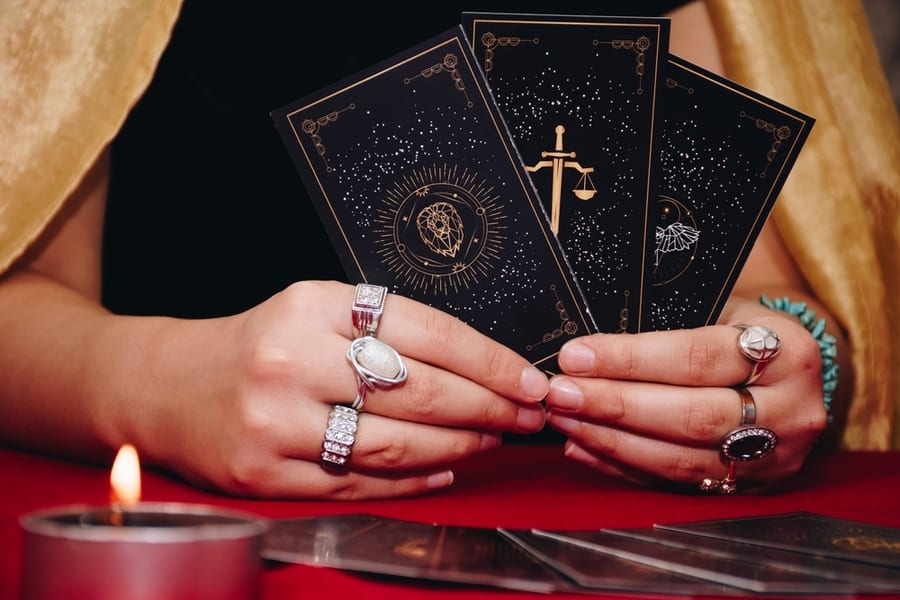
Closed practice refers to one where one follows ancient traditions to perform something. New ideas aren’t generally welcomed here, and such activities may seem obsolete for people of the modern era.
But a closed practice holds a special meaning for people performing it, usually people belonging to a specific group. Shamanism, Witchcraft, and Magic are some perfect examples of such practices.
As people view the world based on the values they grew up with, the religion they follow, and the characteristics that develop based on the society/culture, practitioners believe that closed practice is exclusive to them.
That doesn’t mean you cannot perform these practices, but a specific ritual must be done, and teachings must be adhered to for you to start practicing it.
With the history of tarot as a card game and a tool for divination to get to know oneself better, it doesn’t relate to any of the stuff mentioned in the closed practice. However, the role of Roma gypsies in the 18th century brought about this idea.
Involvement of Romani Gypsies
Roma people used different sets of cards to offer divination and fortune-telling readings. But it was not until the 18th century that they started using tarot as a tool for divination.
The role of Court De Gébelin was the basis behind the idea of tarot getting linked with a closed practice. He suggested that since it is connected with the Egyptian priesthood, and Romany people, who are the direct descendants, are the ones that brought this practice into Europe.
However, nothing linked his conjecture to facts; hence, the idea was disregarded.
Tarot reading performed by Roma people is considered a closed practice because of the tradition and the way gypsies are raised. The way these people devote their whole life to it makes this practice exclusive to them.
Also, “Dukkering,” meaning otherworldly or spiritual, and “Bocht,” meaning fate, are more common terms in Roma culture when they speak of their divination style.
That’s why; it is a closed practice in this sense, but it doesn’t stop you from performing tarot readings. The only difference that will be there is that the reading performed won’t be the same. That’s why; for them, tarot readings of Gorgers versus Gypsies are a different matter in and of itself.
Conclusion
Lastly, there are some references to tarot being a closed practice, but there is no supporting evidence behind this claim. Tarot as a closed practice came after the introduction of tarot cards.
So, tarot reading is an open or semi-open practice, and the universal nature of tarot cards and individual-centered readings further highlights this fact.
Before closing, a tarot reading can be performed by anyone with basic knowledge and a deck of tarot cards. The only difference will be it will differ from the practice of Roma people, but as the generality of tarot cards cater to individuals, the reading won’t lose its meaning.

